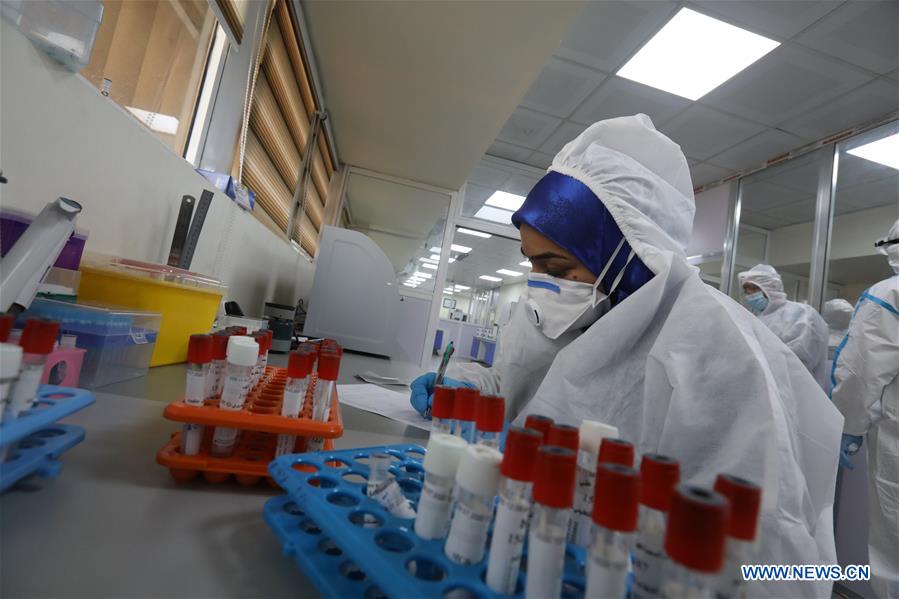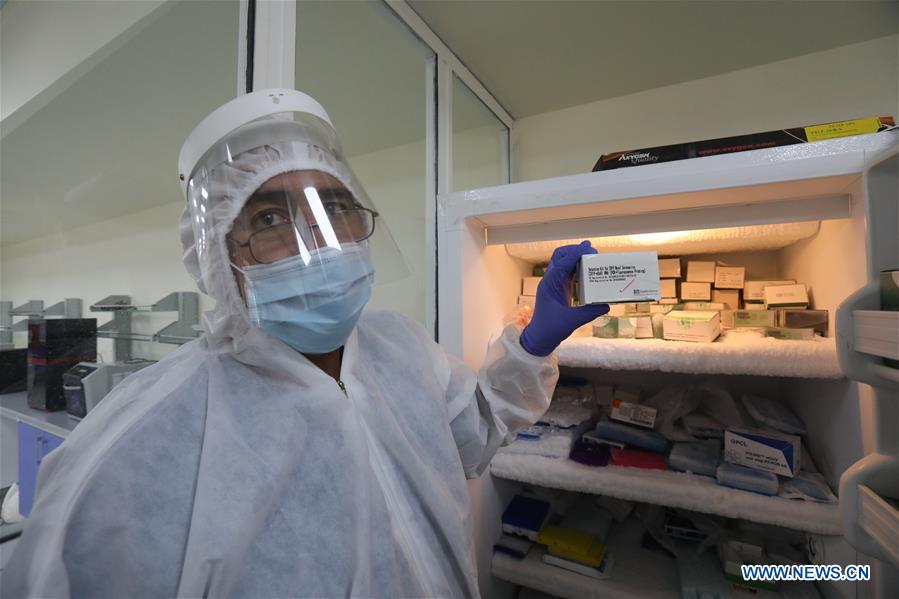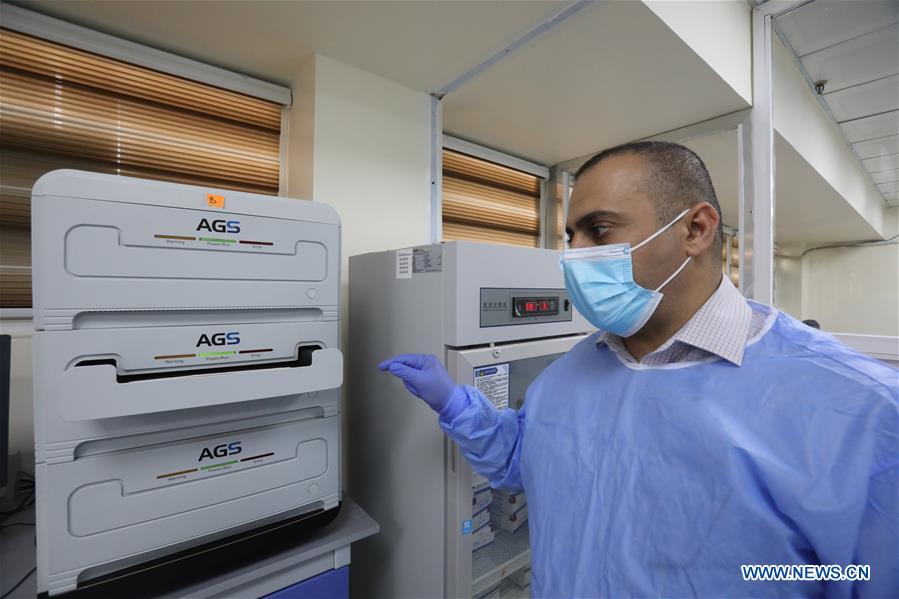Chinese-built lab helps Iraq in anti-COVID-19 battle
From boosting testing capacities to setting a high standard of testing protocol, the lab has played a critical role in helping the Iraqi Ministry of Health (MOH) battle COVID-19 since its inauguration in Baghdad's Medical City on March 25, lab director Mohammed Ghanim Mahdi said.
It is a race against time. Medics are shuffling piles of swab samples waiting for COVID-19 testing in a Chinese-built lab in Iraq.
From boosting testing capacities to setting a high standard of testing protocol, the lab has played a critical role in helping the Iraqi Ministry of Health (MOH) battle COVID-19 since its inauguration in Baghdad's Medical City on March 25, lab director Mohammed Ghanim Mahdi said.

A medic performs COVID-19 testing at a Chinese-built lab in Baghdad, Iraq on July 29, 2020. [Photo/Xinhua]
Built at critical time
"The lab was equipped and established by a donation from the Chinese government at a critical time," Mahdi said. "When this lab was established, Iraq had only one working lab fighting COVID-19."
Mahdi said the lab has facilitated the Iraqi campaign to fight against COVID-19, especially in the first few weeks of the viral outbreak in Iraq.
Iraq has been suffering fragile health systems due to years of conflicts and violence. Before the Chinese-built lab went into operation, the Central Public Health Laboratory in Baghdad was the only place to conduct PCR testing, facing mounting pressure to test samples across the war-torn country.
With the help of advanced Chinese equipment and 50,000 diagnostics kits, so far the new lab has tested some 28,000 samples. Approximately 20 percent of them were positive, Mahdi said.
"Two or three weeks after beginning testing in the new lab, the MOH initiated plans to add labs. Since that time more and more labs have been brought into service," Mahdi said.
However, concerns have been raised as Iraq has become the new epicenter of COVID-19 in the Middle East. On Friday the MOH registered the highest daily increase of 3,461 confirmed cases, the worst in Middle East countries. The tally of infections has reached 144,064 cases.
The rise in cases has been blamed on the easing of lockdown regulations by authorities and non-compliance of prevention measures. The epidemic has flared up in some communities.
"We still need to increase testing abilities," Mahdi said. "The testing rate needs to be at least five or ten percent of our 40 million population in order to detect more and more cases."

A medic shows a diagnostic kit at a Chinese-built lab in Baghdad, Iraq on July 29, 2020. [Photo/Xinhua]
A model lab
Besides building the lab, a group of Chinese experts brought technical training and testing protocols to the new facility.
The Chinese lab sets a good example as Iraq expands labs in all provinces, Mahdi said. In the new lab, 82 percent of the samples posted results in 6 to 10 hours.
"The Chinese experts are very supportive and helpful," Mahdi said. "When they were here, they gave us all the technical training we need. They are also sending me all the documents. This can be a treasure for us."
"They are showing us the way to establish a good lab," Mahdi said, noting that an important feature of the lab is its ability to receive samples around the clock all days of the week. Thirty lab workers are divided into three shifts, enabling the lab to complete 700 to 1,000 tests a day.
Went through dark moment
Mahdi, who holds a Ph.D. in molecular biology, led lab procedures through the dark moments, conquering shortages of testing kits, working all-night shifts, receiving too many cases and watching infection rates grow as the epidemic took a toll on health personnel in Iraq.

Director of a Chinese-built lab Mohammed Ghanim Mahdi works at the lab in Baghdad, Iraq on July 29, 2020. [Photo/Xinhua]
Unfortunately, seven members of the lab staff have been infected by COVID-19, Mahdi said, "but fortunately they all returned to work after recovery."
Zina Anwar Mohammed, a female medic in the lab, told Xinhua that she was infected with COVID-19 on May 28. Her parents later passed away due to severe symptoms of COVID-19.
"I decided to return to my work three days after my father's death," she said. "I want to work diligently and help others, so they will not experience a tragedy like mine." She burst into tears.
Mahdi recalled that the most difficult time was a continuous shift of three days in the lab and his fear of passing the infection to his family.
"When you are not able to kiss your kid because you are doing dangerous work, this is one of the sacrifices in your life," he said.
In a minus-80 degree Celsius freezer Mahdi and his colleagues are saving all positive cases in the lab for future research and testing.
"Once there is a new vaccine, a new testing strategy, this can be useful for further testing," Mahdi said.

